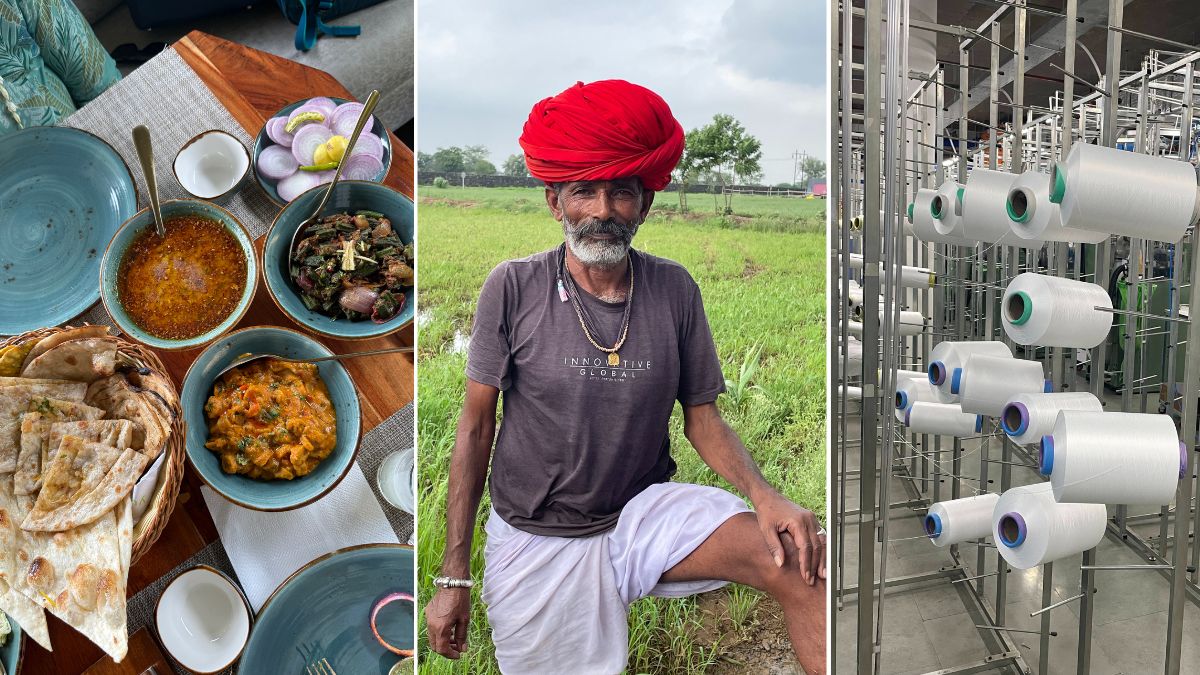Bhilwara: Rajasthan's best kept secret

Udaipur has its lakes. Jaipur has its pink. Jaisalmer has its dunes. Bhilwara? It’s often mistaken for a budget fabric brand or a missed turn on the Jaipur-Udaipur highway. But this low-profile patch of southeastern Rajasthan might just be the state’s best-kept secret—and not in the “hidden gem” way that every influencer claims about a place already trending on Instagram.
Bhilwara has no curated experiences, no tour buses, no themed cocktails named after maharajas. What it does have: a thriving textile legacy, crumbling forts, suspicious goats, ghee-laden thalis, and a level of rural tranquility so pure it feels almost suspicious in 2025.
Thread count royalty
Known as Vastra Nagri or Textile City, Bhilwara hums with the sound of looms spinning denim, viscose, and cotton into India’s daily wardrobe. It’s less palace, more production line—with a surprising sense of rhythm. In local mills, machines clatter like they're auditioning for an underground techno gig, while technicians, part alchemist and part DJ, transform threads into fabric with theatrical flair.
Expect to leave with hand block-printed scarves, dupattas, and an unsolicited crash course in fabric count. (Yes, “80s count cotton” is a thing. No, you don’t need to Google it. Just nod and buy the scarf.)
Forts, food and frescoes—minus the flashbulbs
Bhilwara’s heritage doesn’t come polished or Instagram-optimised, but that’s half its charm. The Harni Mahadev Temple sits peacefully on a breezy hilltop, surrounded by neem trees and zero tourists. Meanwhile, Badnore Fort—an hour out—is a beautiful wreck. Its frescoes fade like old dreams; its ramparts lean, exhausted but dignified. It’s not restored. It’s romantic.
Then there’s the food. Imagine dal baati churma so rich it should come with a disclaimer. Fluffy missi rotis, gatte ki sabzi, and enough clarified butter to qualify as a personality type. Every meal here is a warm, edible embrace—and your gym membership’s worst nightmare.
The countryside is calling—and it has goats
Step outside the city and Rajasthan’s rustic soul comes into focus. At Sangam Farms, an unpretentious rural stay set amid mustard fields and mango trees, the Wi-Fi is whimsical, and the goats have undeniable main-character energy.
Mornings begin with a soundtrack of temple bells, melodramatic roosters, and cows who believe yelling at the sunrise is their moral duty. Guests can hop on tractor safaris set to ‘80s Bollywood bangers, fumble their way through ATV rides, or visit polyhouses growing lettuce with alarming enthusiasm.
Highlights include bottle-feeding calves (adorable and slightly chaotic), learning how mushrooms are cultivated in what look suspiciously like oversized lunch bags, and dining at the farm’s SOL Café, where ingredients are plucked from the backyard and Makai ka Shorba tastes like a spa day in soup form.
The Rajasthani thali here doesn’t hold back: wood-fired pizzas topped with just-picked herbs, churma that could inspire fan fiction, and more ghee than anyone can reasonably justify—but will definitely consume anyway.
Scheduled for nothing
The real draw? Doing absolutely nothing. No itineraries. No hashtags. Just the slow, soul-soothing rhythm of rural life. Guests can birdwatch, cloud-gaze, or drink endless steel tumblers of chai under a banyan tree while questioning the political motivations of passing cows.
One morning, a peacock strolled across the field with the elegance of a Vogue runway model. A local dog plopped down next to a guest like they’d known each other in a past life. These weren’t planned moments—they were better.
Final threads
Bhilwara doesn’t try to impress. It doesn’t need to. In an era of filtered sunsets, manicured villages, and “Top 10 Must-See” lists, this town offers something far more radical: authenticity.
So, for travellers weary of performance tourism and digital noise, Bhilwara offers a slower beat. You’ll return with dusty shoes, full bellies, a possibly emotional attachment to a goat—and the kind of peace that can’t be scheduled on Google Calendar.
Even the peacocks seem to agree.
Neeta Lal is a senior journalist. She loves to explore the intersections of luxury, sustainability, and wellness in South Asia and beyond.
Tourism